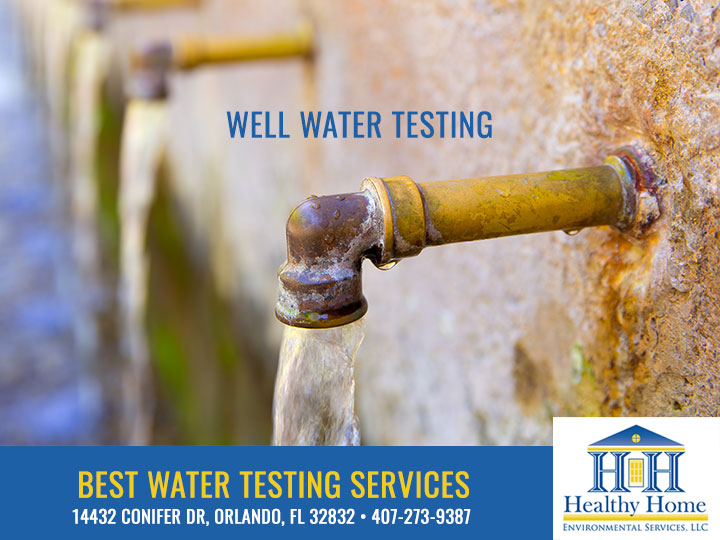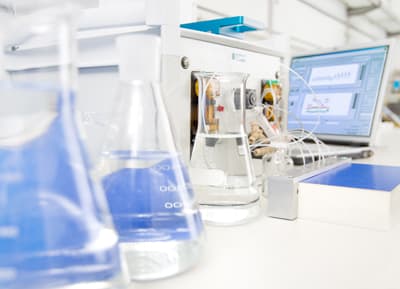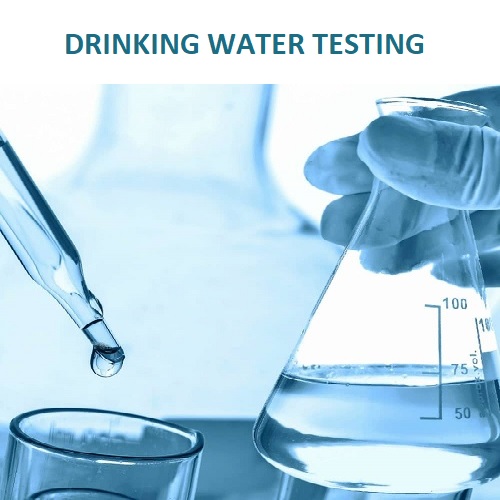Locate Trusted Water Testing Services Near Me for Clean Drinking Water
Locate Trusted Water Testing Services Near Me for Clean Drinking Water
Blog Article
Learn How Water Screening Can Detect Contaminants and Safeguard Your Family's Well-being
Understanding the significance of water testing is important for guarding your household's wellness, as our water supply can nurture unseen risks. By checking out the auto mechanics of water testing, one can uncover the undetectable threats prowling in seemingly immaculate water sources.
Importance of Water Evaluating
Identifying the critical role water plays in sustaining life, the importance of water screening can not be overemphasized. Making sure that water is complimentary from dangerous compounds is important for keeping healthy areas and ecological communities. Water Testing Service.
Water testing offers as a proactive measure to determine potential threats that might jeopardize water quality. With systematic evaluation, it helps spot physical, chemical, and organic specifications that could present dangers to human wellness. Regular testing permits the early discovery of issues, helping with timely treatments to avoid extensive contamination and linked health problems.
Furthermore, water screening supports regulatory conformity, ensuring that water providers meet well-known safety standards and standards set by governmental authorities. It fosters openness and liability, developing public count on the supply of water system. Additionally, screening offers important information that educates water management approaches, enabling lasting use and conservation of this valuable resource.
In significance, water testing is an important device that safeguards public health and wellness, ensures regulative adherence, and promotes the sustainable monitoring of water resources. Its significance in shielding both areas and individuals can not be taken too lightly.
Common Water Contaminants
Amongst the different aspects that can jeopardize water top quality, usual water impurities include a series of physical, chemical, and organic compounds that posture considerable risks to human health and wellness and the environment. Physical impurities frequently include debris or natural materials put on hold in water, which can impact clarity and taste. Chemical pollutants incorporate a broad selection of materials, consisting of chemicals, herbicides, metals like lead and mercury, and industrial chemicals. These chemicals can infiltrate water materials via farming drainage, commercial discharges, or seeping from pipelines and tank.
Biological impurities, primarily microorganisms, viruses, and protozoa, develop from human and animal waste getting in water systems. Virus such as E. coli, Giardia, and Cryptosporidium are well-known for triggering gastrointestinal diseases and can be particularly unsafe to little ones, the elderly, and those with jeopardized immune systems. Nitrates and nitrites, usually coming from fertilizers, position another wellness threat, particularly to infants, potentially leading to problems like methemoglobinemia or "blue baby disorder."
Furthermore, emerging pollutants, including drugs and personal treatment items, have actually raised problems because of their persistence and unknown long-lasting effects. Recognizing these impurities is important for executing reliable water treatment strategies and ensuring secure drinking water.
Just How Water Screening Works
Understanding the range of contaminants in water emphasizes the relevance of efficient testing approaches to guard public wellness. Water testing is an organized procedure created to determine and measure numerous contaminations that could pose risks to human wellness.
Chemical screening often entails spectrometry or chromatography, both of which can identify and measure specific chemical compounds. Additionally, physical qualities like ph, shade, and turbidity are analyzed to supply understanding into the overall quality of the water.
The accurate techniques used in water screening rely on the certain pollutants of issue and the water's intended use. By continually using these extensive screening methods, researchers and public health and wellness officials can make sure the safety and security and high quality of water, therefore protecting neighborhoods from potential wellness hazards.
Selecting the Right Examination
Exactly how does one determine one of the most appropriate water examination for their requirements? Picking the ideal test entails understanding both the particular attributes of the water resource and the potential contaminants that may exist. The very first step is examining the water source-- be it local, well, or surface area water-- as each has distinct dangers. Municipal water may call for screening for disinfectant by-products, while well water might need screening for nitrates, microorganisms, and hefty steels.
Next, think about current events and environmental aspects. Neighboring farming tasks could require testing for herbicides and pesticides, whereas industrial areas can require checks for chemical contaminants. In addition, any modifications in water odor, look, or preference must motivate specific screening for usual impurities like lead, chlorine, or biological microorganisms.
Specialist water screening solutions offer extensive kits that target a variety of prospective contaminants. These kits typically align with Water Tesing Services Orlando criteria established by the Environmental Defense Firm (EPA) or regional health divisions. For a much more tailored technique, speaking with a water high quality expert can provide understandings into which particular examinations are needed based upon regional worries and private wellness requirements, guaranteeing the defense of your home's health.

Maintaining Water Security

Along with screening, appropriate upkeep of water systems plays a crucial role. This consists of servicing and examining pipes systems, tank, and septic tanks to stop leakages or backflow that could introduce contaminants - Water Testing Service. Employing water filtration systems made to resolve certain regional problems can even more secure against impurities, providing an additional layer of defense
Public awareness and education and learning are equally essential in maintaining water security. Neighborhoods must be educated concerning potential threats connected with local water resources and the needed steps to mitigate them. Urging public involvement in water safety campaigns promotes a collective duty that improves overall performance.
Eventually, a detailed technique that integrates normal testing, system upkeep, and area participation is crucial in safeguarding water quality. By doing so, family members can be assured of secure and clean water, shielding their wellness and well-being.

Verdict
Normal water screening is important for determining impurities such as microorganisms, heavy steels, and chemicals that position health and wellness threats. By assessing water examples, undetected threats can be detected, guaranteeing the provision of safe alcohol consumption water.
Recognizing the significance of water screening is vital for securing your family members's wellness, as our water supply can harbor undetected risks.Water testing serves as an aggressive step to recognize potential risks that may endanger water quality.Furthermore, water testing supports governing compliance, making certain that water carriers satisfy well-known safety requirements and standards established by governmental authorities. Municipal water might need screening for disinfectant results, while well water may need testing for nitrates, microorganisms, and hefty metals.
Routine water testing is a vital component in preserving the quality of water resources, making it possible for prompt interventions prior to pollutants get to harmful levels.
Report this page